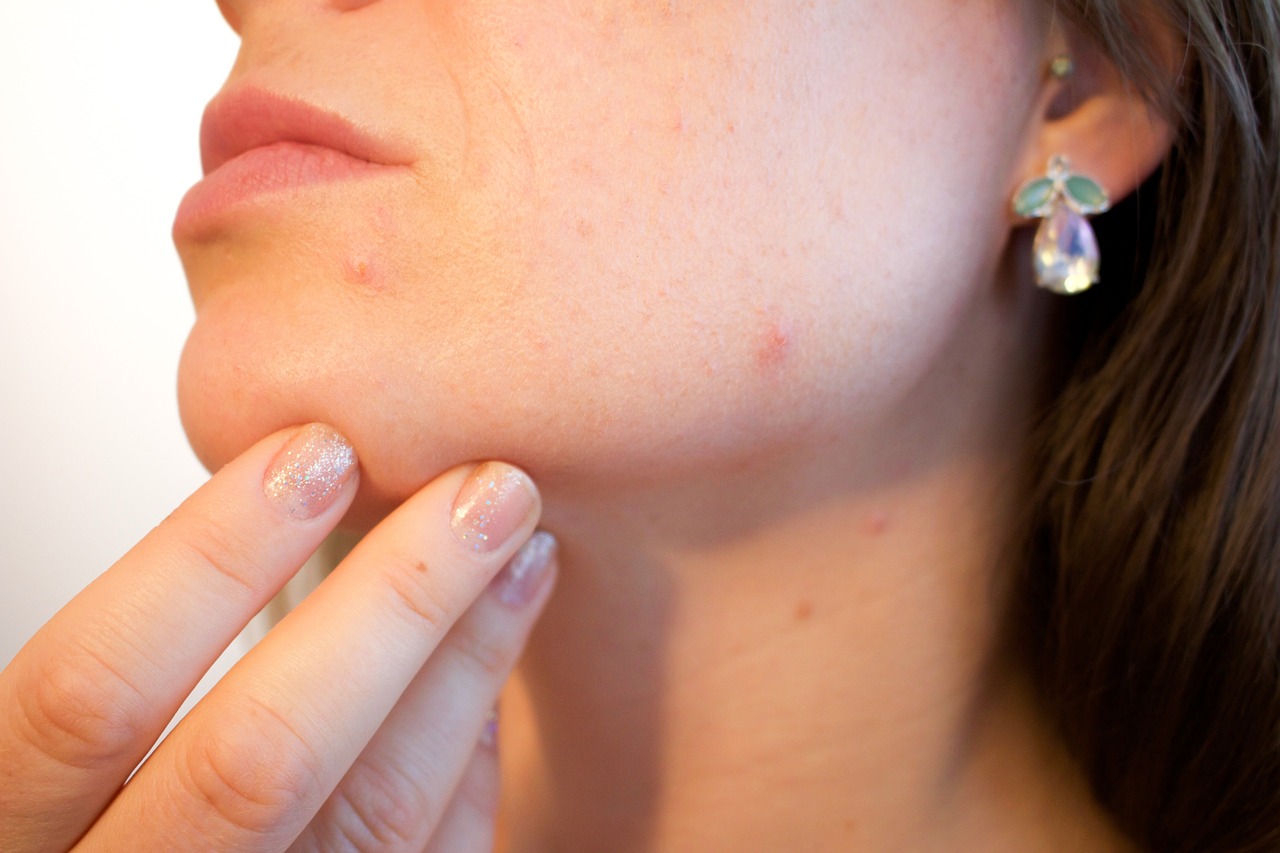Why Do Zits Form on Your Skin?
Zits, those pesky little zits popping that pop up uninvited on our skin, are often a result of excess oil production. Our skin has tiny glands called sebaceous glands that produce an oily substance known as sebum. When these glands become overactive, they can clog pores and lead to the formation of zits.
Another common culprit for zit formation is the presence of bacteria on the skin. When our pores become clogged with a combination of oil, dead skin cells, and bacteria, it creates the perfect environment for zits to flourish. The bacteria can cause inflammation, leading to those red, swollen bumps that we all know too well. So, keeping your skin clean and oil-free is key to preventing those annoying zits from popping up.
How to Properly Cleanse Your Face to Prevent Zits
When it comes to keeping pesky zits at bay, proper facial cleansing plays a vital role. Start your skincare routine by choosing a gentle cleanser that is suitable for your skin type. Harsh products can strip your skin of its natural oils, leading to overproduction of sebum and potential breakouts. Opt for a cleanser that is non-comedogenic to avoid clogging your pores.
Make sure to wash your face twice a day – once in the morning to remove the oils that have built up overnight and once at night to clean off the dirt and impurities accumulated throughout the day. Use lukewarm water to cleanse your face, as hot water can be too harsh and drying for the skin. Avoid scrubbing too aggressively, as this can irritate the skin and worsen acne. Pat your face dry with a clean towel gently to avoid transferring any bacteria onto your skin.
The Best Skincare Products for Acne-Prone Skin
Acne can be a pesky problem that just won’t quit, but arming yourself with the right skincare products can make all the difference. Look for cleansers that contain ingredients like salicylic acid or benzoyl peroxide to help tackle those pesky pimples. These ingredients work by unclogging pores and reducing inflammation, making them a great choice for acne-prone skin.
In addition to a good cleanser, a quality moisturizer is key for keeping your skin hydrated without clogging pores. Opt for oil-free or non-comedogenic formulas to avoid exacerbating acne. Ingredients like hyaluronic acid can also help plump up the skin and reduce the appearance of acne scars. Remember, finding the right skincare products for your acne-prone skin may take some trial and error, so don’t be discouraged if you don’t see results overnight.
Common Mistakes People Make When Popping Zits
One common mistake people make when popping zits is using dirty hands or tools. If you’re not careful about sanitizing your hands or the implements you’re using, you risk introducing more bacteria to the area and causing further inflammation. Always remember to cleanse your hands and tools thoroughly before attempting to pop a zit.
Another mistake to avoid is applying too much pressure when squeezing a zit. While it may be tempting to try and force everything out in one go, excessive pressure can lead to more trauma to the skin and potentially push the infection deeper. Remember to exert gentle and controlled pressure to avoid damaging your skin further.
Alternative Methods for Treating Zits Without Popping
Ever heard of using tea tree oil to zap those zits? This natural remedy has antimicrobial properties that can help reduce acne-causing bacteria on your skin. Simply dab a small amount of diluted tea tree oil onto the affected areas to calm inflammation and promote healing. It’s a gentle alternative to harsh chemical treatments that can sometimes irritate the skin further.
Another trick up your sleeve could be incorporating witch hazel into your skincare routine. Witch hazel is known for its astringent properties, which can help tighten pores and reduce excess oil production. Use a cotton pad to apply witch hazel to your face after cleansing to help keep your skin clear and free from pesky pimples. It’s a simple and cost-effective way to combat zits without resorting to squeezing and popping.
The Dangers of Popping Zits Yourself
Popping zits yourself might seem like a quick fix, but it can actually do more harm than good. When you squeeze a zit, you risk pushing bacteria deeper into your skin, which can lead to increased inflammation and potential scarring. The pressure applied during popping can also damage the surrounding skin tissue, causing redness and prolonging the healing process.
Moreover, popping zits yourself can introduce more bacteria to the area, increasing the chances of developing new breakouts. The act of squeezing can also cause the contents of the pimple to spread to nearby pores, creating more pimples in the surrounding area. It’s best to resist the urge to squeeze and instead opt for safer, gentler methods to treat your zits.
How to Safely Pop a Zit if You Absolutely Must
Alright, so you’ve got a stubborn zit that just won’t quit, and you’re thinking maybe a little squeeze could do the trick. If you absolutely must pop that sucker, here are a few tips to do it as safely as possible.
First things first, make sure your hands are clean. Wash them with soap and water to reduce the risk of introducing more bacteria to the zit. Next, gently cleanse the area around the zit with a mild cleanser to help loosen up any gunk inside. Use a warm washcloth or a warm compress on the zit for a few minutes to help soften the skin and make it easier to extract the pore blockage. Remember, no aggressive squeezing or picking – be gentle with your skin to avoid scarring or further irritation.
Why You Shouldn’t Pick at Your Zits
You know that irresistible urge when you spot a zit on your face and just want to pop it? Well, here’s the lowdown on why you should resist that temptation. Picking at your zits can actually make things worse, pushing bacteria deeper into your skin and causing inflammation. This can lead to even more redness, swelling, and potential scarring – definitely not the outcome you were hoping for. So, as satisfying as it may seem in the moment, it’s best to leave your zits alone and let them heal naturally.
In addition, picking at your zits can also prolong the overall healing process. When you squeeze or pick at a zit, you may not be able to fully remove all the contents, which can lead to the zit re-forming or getting infected. This can result in a cycle of continuous irritation and breakouts, creating a vicious cycle that can be hard to break. By resisting the urge to pick at your zits, you give your skin a better chance to heal properly and prevent further issues down the line.
Picking at zits can push bacteria deeper into the skin
- Can cause inflammation, redness, swelling, and potential scarring
- Best to let zits heal naturally
- Picking at zits can prolong healing process
- May not fully remove contents, leading to re-formation or infection
- Creates a cycle of continuous irritation and breakouts
Tips for Preventing Zits from Forming in the First Place
To keep those pesky zits at bay, start by washing your face with a gentle cleanser twice a day. This helps to remove dirt, oil, and dead skin cells that can clog your pores and lead to breakouts. Also, avoid touching your face throughout the day to prevent transferring bacteria and oil from your hands to your skin.
Another tip is to choose skincare products labeled as “non-comedogenic” or “oil-free” to avoid pore-clogging ingredients. Additionally, make sure to regularly change your pillowcases and wash your makeup brushes to prevent bacteria buildup that can contribute to acne. Lastly, staying hydrated, eating a balanced diet, and managing stress levels can also play a significant role in maintaining clear skin.
When to Seek Professional Help for Zit Popping
If you find yourself in a situation where you just can’t resist the temptation to pop that pesky zit, it’s essential to know when it’s time to leave it to the professionals. If the zit is deep under the skin and painful to the touch, it’s best to seek help from a dermatologist. Trying to squeeze out a stubborn zit on your own could lead to further inflammation and potential scarring, so it’s better to let the experts handle it.
Another red flag that indicates it’s time to seek professional help is when the zit keeps recurring in the same spot. This could be a sign of a more serious underlying issue that needs to be addressed by a dermatologist. Additionally, if the zit is accompanied by severe redness, swelling, or looks infected, it’s crucial to seek medical attention to prevent any complications. Remember, it’s always better to be safe than sorry when it comes to your skin!
Why is it important to seek professional help for zit popping?
It’s important to seek professional help for zit popping because popping them yourself can lead to infections, scarring, and further irritation of the skin. A dermatologist can safely extract the zit without causing harm to your skin.
How do I know when it’s time to seek professional help for zit popping?
If you have a persistent zit that won’t go away, if you have a large zit that is painful or inflamed, or if you have multiple zits that are clustered together, it’s best to seek professional help.
What can a dermatologist do that I can’t do at home when it comes to popping zits?
A dermatologist has the proper tools and expertise to safely extract a zit without causing damage to your skin. They can also provide professional skincare advice tailored to your specific needs.
Will seeking professional help for zit popping cost a lot of money?
The cost of seeking professional help for zit popping can vary depending on your location and the specific treatment needed. However, it’s important to prioritize your skin health and seek professional help when necessary.
Can’t I just pop my zits at home with a needle or tool?
It is not recommended to pop your zits at home with a needle or tool, as this can lead to infections, scarring, and further skin damage. It’s best to leave zit popping to the professionals.
Follow zits popping on Pinterest.

